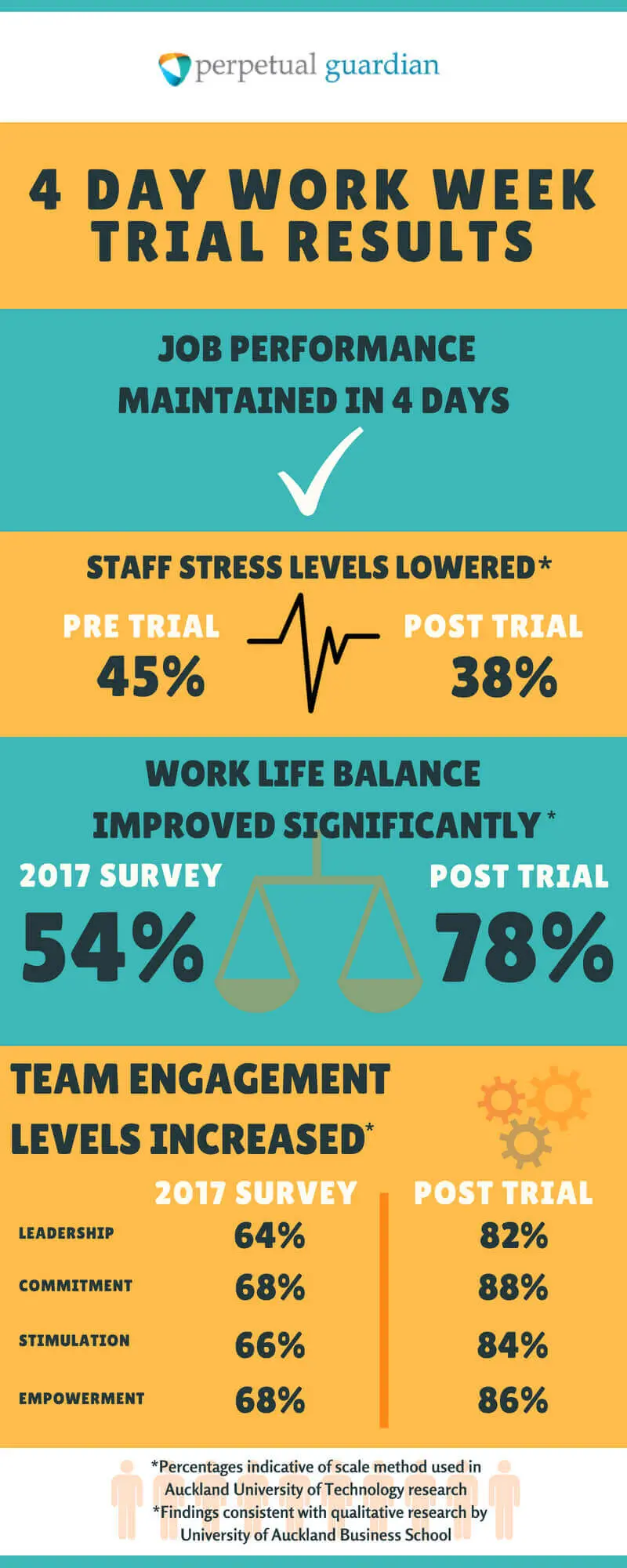New Zealand’s Perpetual Guardian is not some kind of a crazy startup. On the contrary.
They’re one of New Zealand’s biggest trust businesses. What’s more, their heritage dates all the way back to the end of the 19th century. As far as being conservative goes, they’re basically the definition of it.
Which is why nobody expected them to come up with something crazy. Especially not something crazy AND cool like a 4 day work week.
But as it turns out, they knew exactly what they were doing.
During a six-week trial period, reported stress levels lowered from 45% to 38% and work life balance improved from 54% to 78%.
All of that while maintaining their pre-trial productivity levels.
Disconnecting productivity from hours in the workplace.
“I wanted to disconnect productivity from hours in the office,” writes Andrews Barnes, the CEO of Perpetual Guardian, in his LinkedIn post.
“I wanted them to only come to work four days of the week but I would still pay them for five. With no extra hours worked on their four days.” he adds.
It all started over the Christmas. Barnes had read a couple of research reports which suggested that productivity in the workforce can be as low as one and a half hours a day.
Although these numbers are nothing new, they’re in no way less shocking because of it.
But if Barnes’ experiment is anything to go by, 4 day work week could be the answer.
Five days of work squeezed into a 4 day work week.
Barnes invited academics into the office to observe the trial to ensure that reduced hours wouldn’t overburden staff. Naturally, he also wanted to make sure it wouldn’t lead to reduced output.
But even to his own surprise, there was no drop in productivity. In other words, employee productivity rose by 20% for the number of hours worked.
Even better, the researchers saw an increase in staff satisfaction and engagement. It also led to a desire to keep working with the company longer.
The stress levels went down from 45% to 38%, while work life balance increased from 54% to 78%.
Now it’s up to the company’s board to review all the feedback and decide about continuing the four day week as a permanent offer to their staff. So stay tuned!
Oh, and if you’d like to learn a bit more about business benefits of flexible working arrangements, here’s a really good article by NZ Herald about it.
Inspired by the success of a 4-day work week and in search of a company culture that aligns with your work-life balance? Turn your LinkedIn profile into a command performance of a resume and attract those forward-thinking employers.




